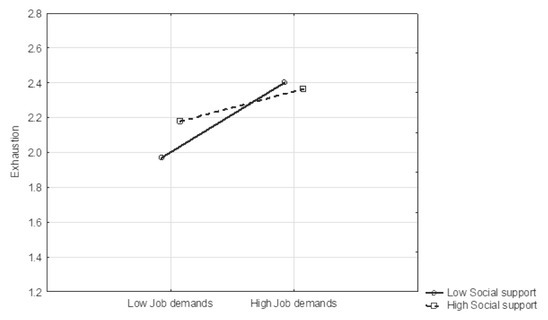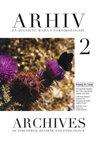工作需求、工作控制和社会支持作为克罗地亚姑息护理护士工作满意度和职业倦怠的预测因子。
IF 1.7
4区 医学
Q3 PUBLIC, ENVIRONMENTAL & OCCUPATIONAL HEALTH
Arhiv Za Higijenu Rada I Toksikologiju-Archives of Industrial Hygiene and Toxicology
Pub Date : 2021-09-28
DOI:10.2478/aiht-2021-72-3556
引用次数: 5
摘要
工作需求-控制-支持(JDCS)模型很少在姑息治疗环境中进行测试,并且在克罗地亚从未对姑息治疗专业人员的职业福祉进行过调查。因此,我们的目标是通过在提供姑息治疗的克罗地亚护士中测试JDCS模型来填补这一空白。更具体地说,我们想看看工作需求、工作控制和工作中的社会支持如何影响职业幸福感结果(即工作满意度和工作倦怠维度的疲惫和脱离工作),根据模型的等应变和缓冲假设。这项横断面研究包括68名在克罗地亚不同姑息治疗机构工作的护士,他们回答了我们的在线问卷。总的来说,护士没有报告高水平的倦怠或低的工作满意度。唯一显著的影响是工作控制对工作满意度的影响(β=0.38;P本文章由计算机程序翻译,如有差异,请以英文原文为准。

Job demands, job control, and social support as predictors of job satisfaction and burnout in Croatian palliative care nurses.
Abstract The Job Demands-Control-Support (JDCS) model has seldom been tested in palliative care settings, and occupational well-being of palliative care professionals has never before been investigated in Croatia. Our aim was therefore to fill that gap by testing the JDCS model among Croatian nurses providing palliative care. More specifically, we wanted to see how job demands, job control, and social support at work affect occupational well-being outcomes (i.e. job satisfaction and burnout dimensions of exhaustion and disengagement from work) in terms of the model’s iso-strain and buffer hypotheses. This cross-sectional study included 68 nurses working in various palliative care institutions across Croatia, who answered our online questionnaire. Overall, the nurses did not report high levels of burnout or low job satisfaction. The only significant effect was that of job control on job satisfaction (β=0.38; P<0.01) and disengagement (β=-0.45; P<0.01), while job demands and social support at work had a significant interaction effect on the burnout dimension of exhaustion (β=0.39; P<0.01) in the sense that high social support at work buffered the increase in exhaustion associated with high job demands. These findings suggest that interventions aimed at increasing perceived job control and social support at the workplace could improve occupational well-being of nurses working in palliative care.
求助全文
通过发布文献求助,成功后即可免费获取论文全文。
去求助
来源期刊

Arhiv Za Higijenu Rada I Toksikologiju-Archives of Industrial Hygiene and Toxicology
PUBLIC, ENVIRONMENTAL & OCCUPATIONAL HEALTH-TOXICOLOGY
CiteScore
3.50
自引率
4.80%
发文量
26
审稿时长
6-12 weeks
期刊介绍:
Archives of Industrial Hygiene and Toxicology (abbr. Arh Hig Rada Toksikol) is a peer-reviewed biomedical scientific quarterly that publishes contributions relevant to all aspects of environmental and occupational health and toxicology.
 求助内容:
求助内容: 应助结果提醒方式:
应助结果提醒方式:


